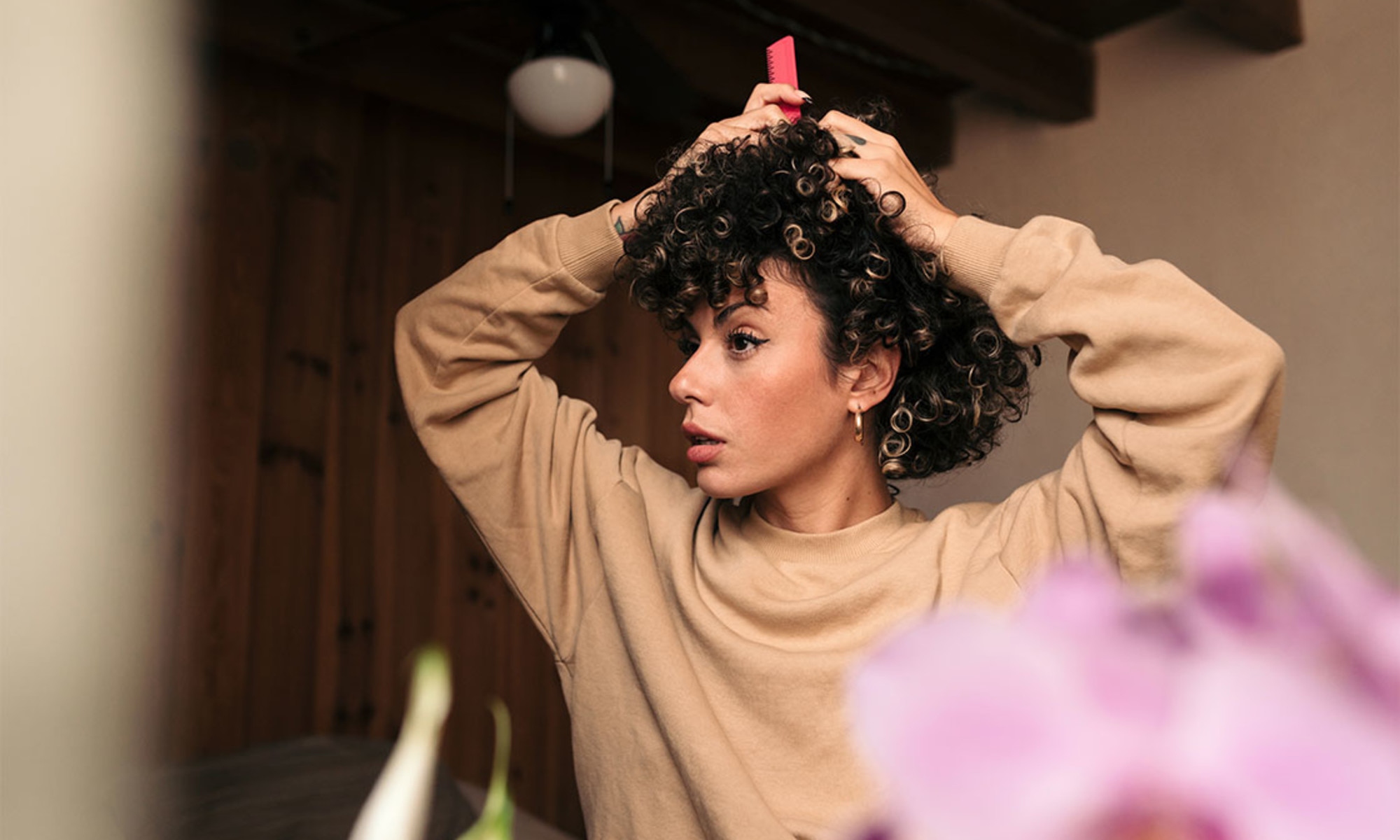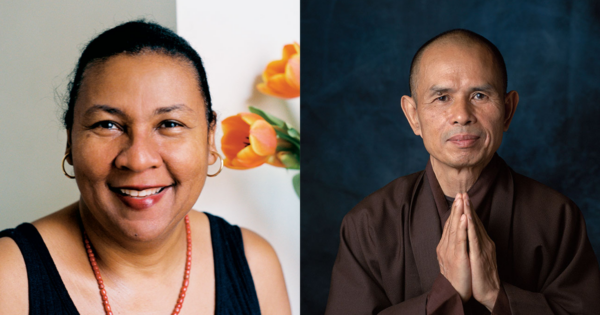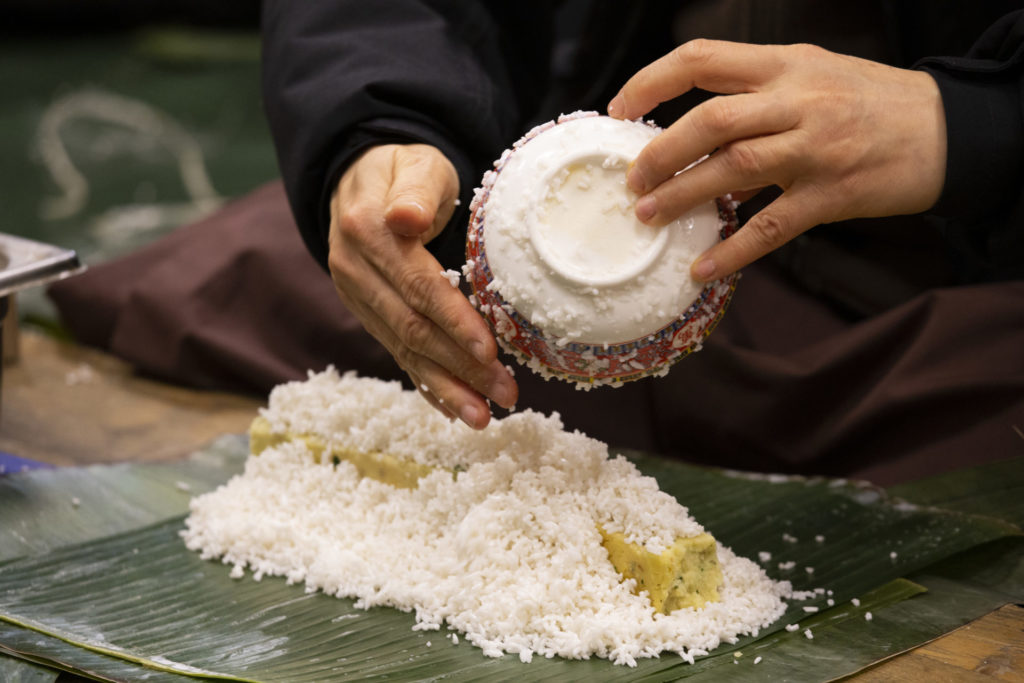Do Hair Supplements Work? What The Pros Recommend For Hair Growth
Not all popular remedies are what they're touted to be.


mbg Beauty Director
mbg Beauty Director
Alexandra Engler is the beauty director at mindbodygreen and host of the beauty podcast Clean Beauty School. Previously, she's held beauty roles at Harper's Bazaar, Marie Claire, SELF, and Cosmopolitan; her byline has appeared in Esquire, Sports Illustrated, and Allure.com.
Image by Lucas Ottone / Stocksy April 15, 2023 Our editors have independently chosen the products listed on this page. If you purchase something mentioned in this article, we may The number of women I know on some sort of hair growth supplement is astounding—far more so than those who take supplements for skin, nails, or other beauty endeavors. Sure this is anecdotal evidence (no, I have not taken a formal survey of my friends' supplement usage), but it really does feel like the cult of hair supplements is a devoted one. Just scroll through social media, follow any influencer, or read most beauty websites: Hair supplements, by all accounts, are a thing, if not the thing.
Advertisement
This ad is displayed using third party content and we do not control its accessibility features.
But not all popular remedies are what they're touted to be. And we believe it's always important to think critically about which supplements work and why. So let's look into the research, shall we? Do hair vitamins and supplements work?
We're going to be real with you here: This is a complicated topic. Hair growth and health are influenced by many factors—both internal and external. That being said, many people swear by hair vitamins and supplements to help support hair health overall.*
Now, the theory behind hair supplements really comes down to internal structural support. Let's explain: Hair is made up of keratin1, a type of protein that consists of about 18 amino acids2 including cysteine, proline, threonine, leucine, and arginine. And like most processes in the body, the production of keratin is heavily influenced by free radical damage and oxidative stress—both of which can be eased or neutralized by antioxidants.*
Ok, but do supplements work? Well, while key nutrients and bioactives can support the synthesis and protection of hair*, clinical studies using supplements in healthy populations are hard to find. (You'll find some research in people with various nutrient deficiencies, but there's not much published research on hair supplements for the average person.)
And given that their mechanisms are more about creating optimal conditions for hair health, it's challenging to track just how much they influence hair growth.
Not to mention: As with the efficacy of any supplement, it comes down to the formulation. But that's not to say there isn't robust anecdotal support for hair supplements: While peer-reviewed publications are ideal, lots of anecdotal reports collectively carry merit too.
Summary
SummaryWhile there isn't enough research to prove that a given supplement will give you longer locks, many supplements deliver nutrition that can support hair health.*
Advertisement
This ad is displayed using third party content and we do not control its accessibility features.
What kinds of hair vitamins are there?
As hair supplements aim to support keratin production, reduce hair breakage or damage, and ease various potential stressors to the hair follicle, the most common ingredients are all structured around these processes in some way.* Here are some specific vitamins and blends you may want to consider.
Protein support
As keratin is a protein, you want to make sure you're ingesting enough amino acids to aid in protein production. While collagen is not a complete protein, depending on your supplement's formula, it can contain several unique amino acids (sometimes as many as 18) that can play a valuable role in protein intake overall.*
"As collagen is digested by your gut, it is broken down into its individual amino acids that circulate throughout the body," says Joshua Zeichner, M.D., a New York City–based dermatologist and director of cosmetic and clinical research in dermatology at Mount Sinai Medical Center.*
Advertisement
This ad is displayed using third party content and we do not control its accessibility features.
Biotin
Biotin is a very popular hair supplement addition. Biotin is a type of B vitamin, specifically B7. The vitamin is involved in keratin production3, and deficiencies are connected to loss and breakage.*
However, biotin deficiency4 in the U.S. population is rare.* Meat (especially organ meat), fish, eggs, seeds, nuts, and certain vegetables (sweet potatoes, broccoli, and spinach) are top food sources of biotin.
Antioxidant support
Many hair woes can be traced back to oxidative stress and free radical damage. So to support healthy hair, many lean on antioxidant nutrients and botanicals such as vitamin C, E, turmeric, and CoQ10, among others.*
Ultimately, however, whether you take a good multivitamin with these nutrients or a stand-alone higher-dose hair-centric supplement, the most benefit is likely to come for folks who need the supplementation.
Summary
Protein and biotin are key to keratin production, while antioxidants like Vitamin C and E support overall hair health. *
Advertisement
This ad is displayed using third party content and we do not control its accessibility features.
Signs of vitamin insufficiency in hair
Since healthy skin and hair start on the inside, inadequate intake of certain nutrients may affect appearance. If you're not getting a robust, diverse diet (lots of fruits and vegetables, high-quality protein, and healthy fats), you may see physical signs like shedding, dullness, and breakage.
If you suspect nutrient insufficiency or even deficiency, your best course of action is to get checked out by a health care professional who can perform the correct tests and guide you on what to do next.
According to research, these are the most important nutrients linked to normal hair health and appearance5,* so getting enough of these each day is important:
Advertisement
This ad is displayed using third party content and we do not control its accessibility features.
What are other causes of hair loss?
There are many, many contributing factors to hair loss and thinning—some more pressing than others and some better understood than others. So if you're experiencing hair loss, it may feel impossible to pinpoint why it's happening. (If you're dealing with this right now, we empathize with you.)
That all said, here are some of the more common reasons to keep in mind. As always, if you fear your hair loss is significant and serious, it's worth visiting a doctor, dermatologist, or trichologist.
1. Aging
Hair growth slows with age6 until, at some point, hair follicles stop growing hair altogether. Aging of the hair also affects its color and density (that is, hair turns gray and becomes thinner). According to research, the age at which our hair follicles start to slow production is different for every individual6—for some people, it could be age 40; for others, age 70.
2. Hormones
Hormones play a huge role in beauty—from influencing collagen production to triggering acne and, yes, hair loss. One of the main hormones that influences hair is cortisol (the stress hormone, which we'll talk about in the next section), but thyroid and sex hormones also influence hair growth. For example, estrogen is connected to keratin production7—this is why pregnant women may experience lush, thick hair, which sheds shortly after birth.
3. Stress
The link between stress and hair loss8 is well researched and proven. This again ties back to balance, or homeostasis, in the body, specifically in relation to the sympathetic nervous system and the adrenal glands9. "Both of these hormone [regulators], if out of balance due to high stress, will create hair thinning and loss," says certified trichologist Penny James.
4. Hair follicle damage
When the hair follicle is traumatized, it will cease to grow hair. This happens primarily because of repeated stress (like tight hairstyles) or inflammation from buildup. "If buildup is really extreme, it can even pull the hair down because there's so much inflammation around the hair follicle," says Adarsh Vijay Mudgil, M.D., board-certified dermatologist and founder of Mudgil Dermatology.
5. Environmental aggressors
According to one recent study done on human hair cells, exposure to common air pollutants (such as car and diesel exhaust) directly decreased the protein in our follicles10 that is responsible for hair growth. The same study showed that the more air pollution a hair follicle was exposed to, the bigger the impact it had on hair loss.
Summary
Aging, stress, hormonal changes, follicle damage, and environmental toxins can all contribute to hair loss.
What makes hair grow faster?
Going to be honest with you: This is a deceptively complicated question! That's because adding length to your hair requires a combination of encouraging healthy growth while also preserving the hair you already have. (After all, new growth means nothing if you just keep having to trim off split ends and damage.)
Now, on average hair grows about ¼ inch to ½ inch a month, according to Bridgette Hill, certified trichologist and founder of Root Cause Scalp Analysis. This may fluctuate depending on where you are on the hair growth cycle. Hair grows in phases11: anagen, catagen, and telogen, plus a theorized fourth phase, exogen.
You'll likely feel that your hair grows faster during the primary growth phase (anagen), but at any given point in time about 10 to 15% of your hair is in the shedding phase (telogen or exogen).
There's little you can do to influence this cycle naturally, but there are ways to support your hair growth so it's healthy long term.
Try androgen blockers
Unlike hair vitamins, which are dietary supplements, androgen blockers are topicals and medications that a health care practitioner could prescribe to influence your hair growth cycle.
"Hair-growth products are mainly androgen blockers with active ingredients that trick the body into extending the growing phase of the hair cycle," Hill says. "There are clinical and scientific studies that show these topicals and internal bioactives work."
However, these are typically only studied on men with male-pattern baldness. You likely know androgen-blockers as products or drugs such as finasteride and minoxidil12 (the active ingredient in Rogaine).
Tend to your scalp
A healthy hair follicle is vital to growth. One of the more common reasons hair follicles become damaged is by not having proper cleansing practices.
See, when you don't adequately remove buildup on the scalp, it can become inflamed. This happens because the inflammation starts to close off the hair follicle, limiting growth and eventually leading to shedding.
"This inflammation will affect the quality of your hair growth. It happens when you have product, dirt, and oil building up around your follicle opening—which is where your hair grows out of—and that buildup starts to slowly suffocate your hair root," says trained trichologist and hairstylist Shab Reslan.
Protect hair from physical damage
This, of course, is more about the hair you already have. But as we've said before, adding length means nothing if you're going to have to trim it off thanks to wear and tear. The most relevant cause of damage is heat. One study found that regular styling with hot tools significantly decreased moisture content and increased breakage13 of hair.
Summary
Tending to build up and avoiding too much heat treatment can help keep hair healthy. Healthcare providers may also prescribe androgen blockers to keep hair in the growth phase of its cycle.
How to thicken hair
While some hair growth goals may be about length (and speeding up the time to get said length), others are more concerned about density.
This is a trickier topic, as density and thickness largely come down to your genetics. Now, as we've discussed above, thinning can be traced back to a lack of key daily nutrients, but most often thinning hair is just a fact of life and your DNA. As for encouraging thickness, there are two techniques that you can try:
1. Scalp massage
"Beautiful, strong hair depends on good blood circulation, proper nutrition, and a healthy and supple scalp," says board-certified dermatologist Raechele Cochran Gathers, M.D., who specializes in hair care and founded MDHairMixtress.
See, what's theoretically happening with regular scalp massages is that the extra attention is helping encourage blood flow to the area, bringing with it oxygen and hair-healthy nutrients. This is especially helpful for those who do have a tense scalp, as muscle tension can often inhibit proper blood flow to the area.
In fact, in a 2016 study, a small number of men received a daily four-minute scalp massage. At the conclusion of the study, the investigators found an increase in hair thickness14. A 2019 study found that of the 300 or so participants who followed a specific massage regimen, nearly 70% reported improved hair thickness at the end15.
2. Try PRP
"Platelet-rich plasma injections [PRP] are done by drawing a patient's blood, spinning it down to separate regenerative platelets, and injecting those back into the scalp," explains board-certified dermatologist Reena Jogi, M.D. The resulting platelet-rich plasma contains growth factors that promote hair growth in the base of the follicle. "This results in decreased shedding, increased growth phase of the hair follicle, increased density of the scalp hairs, and increased thickness of the hair follicles themselves," Jogi explains.
Summary
Dermatologist sometimes administer platelet-rich plasma injections to patients concerned about hair thickness. For an at home strategy, try a scalp massage.
The takeaway
We wish this could be more straightforward, but unfortunately, hair loss, thinning, and growth are very complicated and individualized topics. Not to mention, we likely need more research done on effective ways to encourage growth—supplements included.
But in the meantime, if you find a hair supplement that works for you, by all means, keep on enjoying your lush benefits.*
If you are pregnant, breastfeeding, or taking medications, consult with your doctor before starting a supplement routine. It is always optimal to consult with a health care provider when considering what supplements are right for you.

 Tekef
Tekef 































